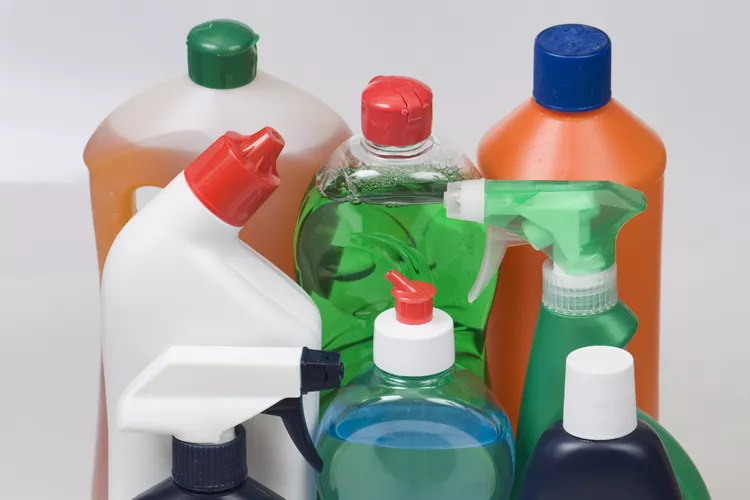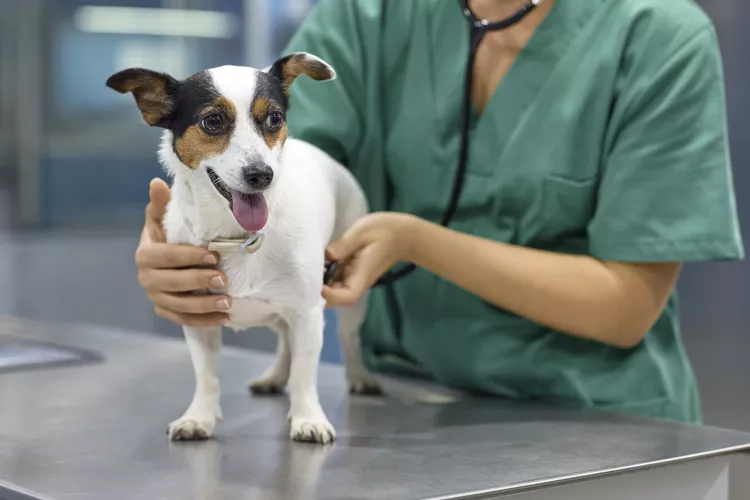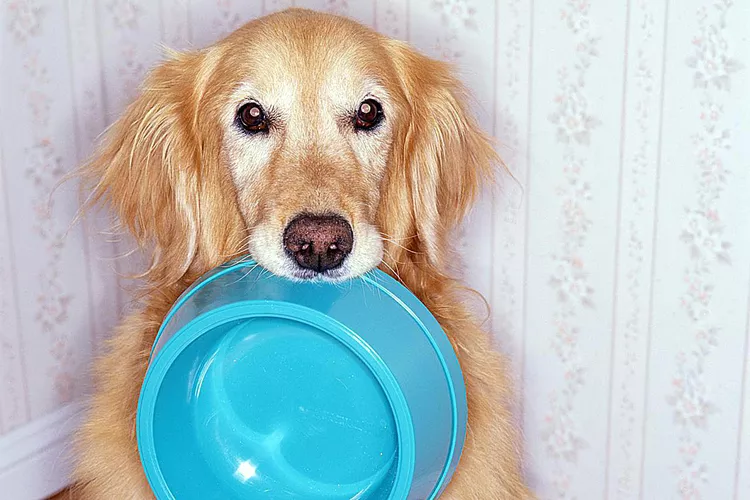
Firework toxicity can pose a health problem to a dog that was standing or sitting too nearby when fireworks were set off. A dog can suffer burns inside its mouth if it tried eating a firework that was hot or still lit. The gunpowder in fireworks can also irritate the eyes.
Firework toxicity is the damage your dog can suffer from a chemical substance or substance mixture that is harmful to animals. If these ingredients are ingested, different reactions can occur that will make your dog ill.
Call your veterinarian immediately if you notice any of the following symptoms in your dog or if you know your dog has ingested fireworks. The severity of symptoms from poisoning will depend on exactly what type of firework your dog ate, if it was lit or unlit, how much was eaten, and when the dog ate it.
Your dog may have external burns on its face, specifically on its nose, lips, and eyes if it was exposed to gunpowder and other toxins in fireworks. Or your dog may have internal burns in its mouth or further down in its esophagus if it has ingested gunpowder or other parts of a hot or lit firework.
If you notice your dog’s gums or urine are brown, this could be a sign that methemoglobinemia has started. Methemoglobinemia is a blood disorder that impairs the hemoglobin in the red blood cells from properly circulating oxygen in your dog's body. The lack of circulating oxygenated blood can cause discoloration in your dog's gums and urine.
Your dog may experience pain in its abdomen along with bloody vomit and diarrhea. In addition, your dog may exhibit excessive salivation as a reaction to methemoglobinemia.
In more severe cases, your dog's skin may become discolored yellow, which is a sign of jaundice signaling kidney failure.
Seizures and tremors are indications that your dog has a large number of toxins in its system.
Shallow breathing is another result of your dog's system trying to manage a large number of toxins in its system.
Fireworks can contain different types of ingredients to achieve combustion, special effects, and color that can cause numerous reactions in your dog. For example, gunpowder is typically used as a fuel, and it contains potassium nitrate, charcoal, and sulfur as the propellants. Fireworks also contain metal colorizing agents, such as barium chloride, strontium chloride, and copper chloride, all of which are toxic to humans and animals. The chemicals in fireworks can cause a host of complex and potentially fatal reactions in your dog's body to potentially cause damage to the kidneys, pancreas, brain, and nervous system.
Clinical symptoms and the timing of the illness are usually enough to diagnose that a dog has ingested parts of a firework. Your veterinarian will want to know as best as possible the type or brand of firework to determine the ingredients to decide whether or not to induce vomiting or move on to other treatments.
If your dog is exhibiting mild symptoms, your vet may initially suggest some home remedies to try.
Hydrogen peroxide will cause an animal to vomit which may be enough to rid their body of the toxins. However, you should NEVER induce vomiting in your dog unless specifically told to do so by your vet. Depending on the ingredients in the fireworks, vomiting can sometimes do more harm than good to your dog.
If your dog ingested a large number of toxins or is showing signs of extreme distress, hospitalization may be necessary. Intravenous fluids and medication might be administered to try and prevent serious and permanent damage to organs.
Most dogs will respond well in a few days to timely treatment. However, it may take a couple of weeks for your dog to recover from internal mouth or digestive system burns.
The easiest way to prevent firework toxicity is to keep your dog on a leash with you or indoors away from the celebrations. This way your pet cannot get close enough to be burned or affected by the smoke or flash of gunpowder as the fireworks explode. After the show is over, make sure to pick up all the trash from setting off fireworks. Anything left on the ground could contain the toxins discussed and cause problems from discomfort to serious organ damage for your dog.
The most common concern that dog owners are familiar with during any holiday that includes firework displays is the response to the loud noises that cause anxiety. Dogs may react to the noises by drooling, shaking, or pacing. If your dog has a phobia of loud noises, the reaction may be much more severe.
Some dogs may try to escape the area they are in to try and move away from the noise. Their escape attempts may include trying to get through doors by chewing holes in them or breaking glass in windows. If they get outside, they often run away from their home. They could get lost and if found by animal control, they may be collected. Dogs that are not used to being outside may not have the experience to avoid roads and could potentially be hit by a car.

10 Obscure, Little-known Canine Facts in Honor of National Dog Day
With National Dog Day upon us, it's time to celebrate everything about our favorite pets—even the weirder stuff. Here are 10 obscure facts about dogs you probably didn't know.
Exploring the Different Types of Pet-Friendly Beaches
Are you looking for pet-friendly beaches? Learn about the different types of pet-friendly beaches, their locations, and tips for visiting them with your pet.
Toxic Chemicals & Household Items That Can Poison Dogs
There are many things in and around your home that can endanger your dog. Learn which chemicals and household items can poisin your dog.
Bronchitis in Dogs
Is your dog coughing and feeling unwell? It could be due to respiratory inflammation called bronchitis. Learn the causes, treatment, and prevention.
Choking in Dogs
A dog can occasionally swallow something incorrectly and start choking. Find out how you can tell if your dog is choking and what you can do about it.
Why Does My Dog Smell So Bad?
Does your dog smell? Find out what could be causing these unpleasant odors and if it's something that needs more than just a bath to fix.
Is Rosemary Safe for Dogs?
Rosemary is used both for cooking and as a supplement with many reported health benefits in people, so you may be wondering if it is safe to give to your dog. Rosemary is considered non-toxic for dogs but with some caveats.
Can Dogs Eat Blueberries?
Dogs can safely eat blueberries. Blueberries are packed with nutrients and can be a great addition to your dog's diet when fed in moderation. Learn more about the benefits, risks, how to incorporate blueberries into their diet, and other fruits dogs can eat.
Dog Food Basics
Are you feeding your dog the best way possible? Check out these dog feeding tips to keep your dog healthy and happy.
Swedish Vallhund: Dog Breed Characteristics & Care
The Swedish vallhund makes for a high-energy and affectionate companion. Learn about the breed's history, health, exercise needs, and more.
Becoming a Show Dog: Getting Started
Do you have the perfect puppy? Have you considered showing her in a dog show? There's much more to showing than showing up! Here's how to get started.
How to Care for a Hairless Cat
Hairless cats make great pets but they aren't without their own challenges and requirements. Read on to learn how to best care for your furless feline.
British Shorthair: Breed Profile, Characteristics & Care
The British Shorthair is a calm, affectionate cat that looks and feels like a plush teddy bear. Here's what you need to know about this popular breed, including appearance, temperament, health, and care.
Tonkinese: Cat Breed Profile, Characteristics & Care
The Tonkinese cat is a perfect mix of the Siamese and Burmese—smart, sociable, and sweet. Learn about the Tonkinese breed.
How to Stop Your Cat From Chewing Electrical Cords
Cats are known to pounce and attack inanimate objects, like electrical cords. Learn how to prevent your cat from ambushing objects that may harm it.
How to Stop Aggression in Kittens
Kittens may show aggressive behavior for several reasons. Sometimes their play gets too aggressive while other times the kitten is afraid or upset. Learn how to spot and curb aggression in kittens.
46 Egyptian Cat Names
Whether inspired by notable Egyptian deities, locales, or pharaohs, Egyptian cat names can bring out the divinity of your noble feline companion.
How to Tell If a Kitten is a Boy or a Girl
If you're wondering whether your new kitten is a boy or a girl, here are three ways to help determine the sex of your cat.
Signs Your Cat Is Aging and When to See the Vet
Expect some changes when your cat ages. Learn to differentiate between normal and potential medical problems for your elderly cat.
Coronavirus in Cats
Feline coronavirus (FCoV) rarely harms cats but can lead to another life-threatening illness. Learn the causes, treatment, and prevention.